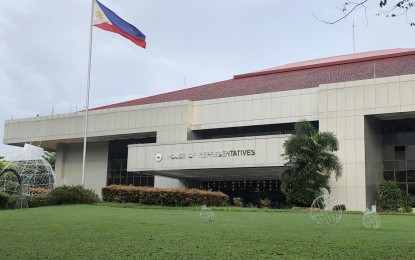
MANILA – To mark Constitution Day, a panel at the House of Representatives on Tuesday approved a measure proposing amendments to the “restrictive” economic provisions in the 1987 Constitution.
The House Committee on Constitutional Amendments, chaired by Ako Bicol Rep. Alfredo Garbin Jr., adopted Resolution of Both Houses No. 2, with 64 committee members voting in favor of the resolution, three against, and with three abstentions.
The proposal, which is principally authored by Speaker Lord Allan Velasco, aims to amend certain economic provisions of the Charter, particularly Articles XII (National Patrimony and Economy), XIV (Education, Science, Technology, Arts, Culture and Sports), and XVI (General Provisions).
It seeks to insert the phrase “unless otherwise provided by law” to several sections of the Constitution, which restrict foreign ownership of public utilities, educational institutions, media, and advertising.
The panel dropped the proposal to allow foreign ownership of land upon the motion of Iloilo Rep. Lorenz Defensor.
Garbin has assured that the proposed amendments will be limited to the economic provisions in light of the damaging effects of the Covid-19 pandemic on the Philippine economy.
He said the slight change in the Constitution’s language will help improve the investment climate and generate much-needed investments and jobs to offset the devastating economic impact of the pandemic.
“Our Constitution is far from being perfect. We need to open up protectionist provisions to attract foreign investments,” he said.
Velasco sought to liberalize the restrictive economic constitutional provisions to allow Congress to enact laws that will free up the economy to foreign investors and provide much-needed economic relief to Filipinos in the wake of the Covid-19 pandemic.
He said foreign investment plays a crucial role in the Philippine economy by supporting domestic jobs and the creation of physical and knowledge capital across a range of industries.
“The need to attract foreign capital is critical to support our economy’s recovery from Covid-19,” Velasco said.
Velasco’s resolution has the backing of all major political parties and power blocs in the House of Representatives who have earlier signed a manifesto in support of RBH 2.
A number of economists agreed that lifting foreign investment restrictions could improve foreign direct investment or FDI inflows into the Philippines, particularly in areas restricted in the Constitution.
Relaxing the economic Charter provisions, they said, would open the door to establishing a platform for promoting stronger investments and a more inclusive economic development. (PNA)
